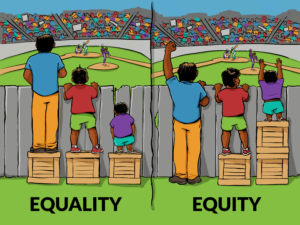STEM subjects, in general, are hard. And rightly so, these subjects represent the limit of our technical understanding. However, that doesn’t mean we should accept that some students will struggle and learn to dislike our favourite subject; we should do everything we can to ensure their success.
A vicious circle can occur where if the student doesn’t understand something they disengage with it. As so often is the case in STEM subjects, later material is built up from earlier understanding, which can cause students who have missed something earlier on to become frustrated as their grades fall. Ultimately some people can learn to dislike their subject. “I hate maths” was often a catchphrase I heard some fellow students say during my education. Of course, this phrase is not used by students who are doing well; it’s used by students who have become disengaged and disillusioned, most often because somewhere along the road, we have lost them, or they us, for whatever reason. So what can we do about this? We need to find out where they got lost and re-engage them.

A while ago, the above image ended up on my screen, and I think this difference between equality and equity is relevant to many areas of life, including education. Of course, dedicated students with opportunities are going to do well, it’s those that are behind that need help. Like the person on the right of the left-hand side image (equality), if you come to today’s lecture not having understood something from a previous lecture, you put yourself at a disadvantage for today. If this keeps happening, this disadvantage compounds, and the gap between the top students and you becomes greater and greater. Whereas, if more attention is spent on students who are behind, you can bring them back up to speed so that everyone can benefit from today’s lecture in the same way (equity).
Traditionally, this would be done by tutorial sessions at the university level, and by simply asking the lecturer for help at the college/ pre-university level. The former may only be available for the first year of university, and depends on the student feeling confident enough to solve problems in front of academics with their peers watching – not likely to happen if you have already fallen into the aforementioned vicious circle. The latter depends on either the student asking for help, or the lecturer having the time to actively intervene after both noticing and caring about the students falling attendance or grades. A commonality between these two problems is, to a certain extent, the student can expose themselves socially, which may be part of why they don’t want to engage.
Generally speaking, the computer doesn’t judge. It’s a neutral character, and one that can help students in this case.
I have put together a short presentation to explore these themes a little closer and to look at how technologies like Möbius can be utilized to provide equity to students by meeting them where they are, building their confidence in assessment, and adapting the material shown to them to build their skills and bring them up to speed. In Möbius this can be achieved through a combination of adaptive assessment – where the students are presented with questions based on the student performance in earlier questions of that assessment – and gating the student through activities based on their performance in those assessments. In this way, we can provide material relevant to them, whatever level of understanding they have, and reinforce the learning experience through positive experiences of assessment. During the webinar, I will show a short example of what this looks like.

